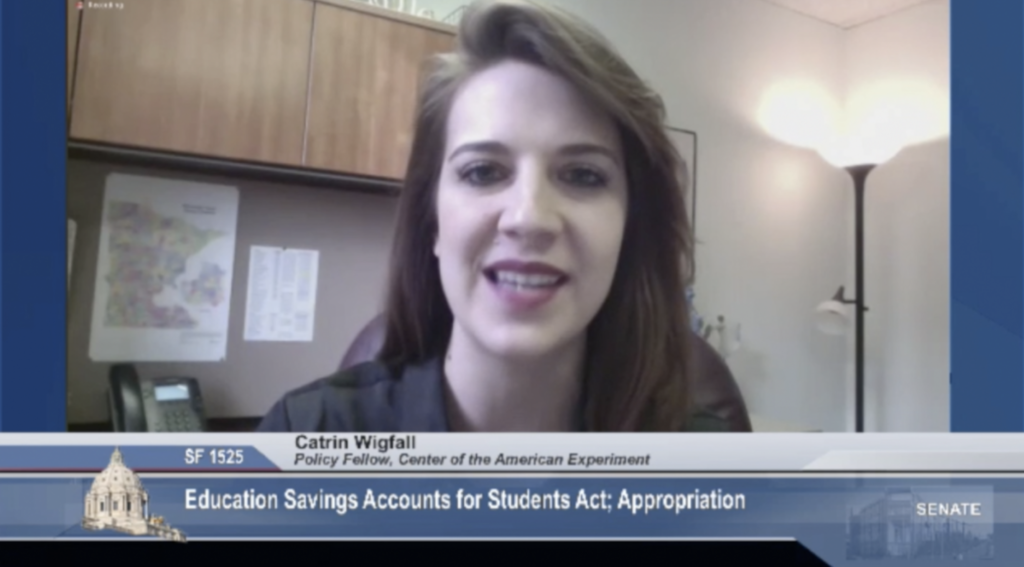Choice over spending
Education Savings Accounts benefit students who need the most help.
The debate over expanding access to K-12 education options ended with both the advancement of a groundbreaking bill and the disparagement of a policy expert who supports it.
S.F. 1565, passed in March by the Senate Education Finance and Policy Committee, will create Education Savings Accounts (ESAs) in Minnesota. By May, Minnesotans will know if it becomes law.
These state-funded accounts would empower parents to customize their children’s education by accessing a variety of educational services simultaneously that meet their immediate needs — from tutoring, tuition assistance and curriculum to mental health treatment, special education services or therapy and postsecondary costs.
Catrin Wigfall, a policy fellow at Center of the American Experiment, testified that the bill prioritizes students, which is the way spending should work considering money comes from families in the first place.
“Education funding isn’t meant for buildings,” she said. “Efforts to limit the education options families can access tells them, ‘We don’t trust you.’ And it disproportionately impacts the least advantaged, including communities of color.”
Her words agitated the decorum out of DFL Sen. Jason Isaacson.
“To have people [testify] from the Center of the American Experiment, which is just a joke to begin with, is ridiculous. I can’t take their propaganda seriously, ever,” Isaacson said.
What he must take seriously is the heightened sense of urgency COVID-19 has added to meeting students’ needs. Families now more than ever are realizing the shortcomings of a top-down education system, leaving many desperate for other options.
Education Savings Accounts would create an equal opportunity for all children in Minnesota to access such alternative options.
Five states (Arizona, Florida, Mississippi, North Carolina, and Tennessee) have ESA programs, with a handful of others (including Indiana, Iowa, North Dakota and Kansas) considering their own ESA legislation. Multiple states have advanced and passed ESAs with bipartisan support, and the structure of savings account programs has been found constitutional, as aid is going to parents.
Wigfall cited numerous empirical studies from around the country about the success of school choice programs like the ESA initiative being proposed and also noted that no study has found that these programs cause a negative fiscal impact on either taxpayers or public schools.
